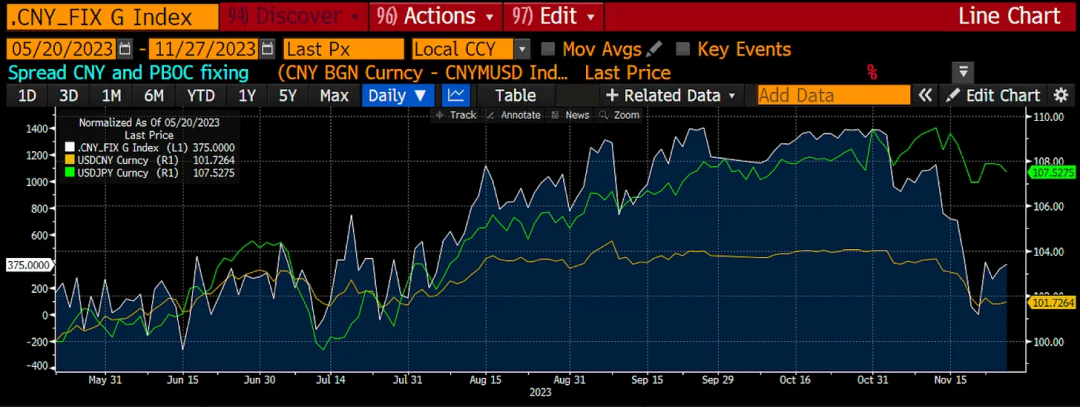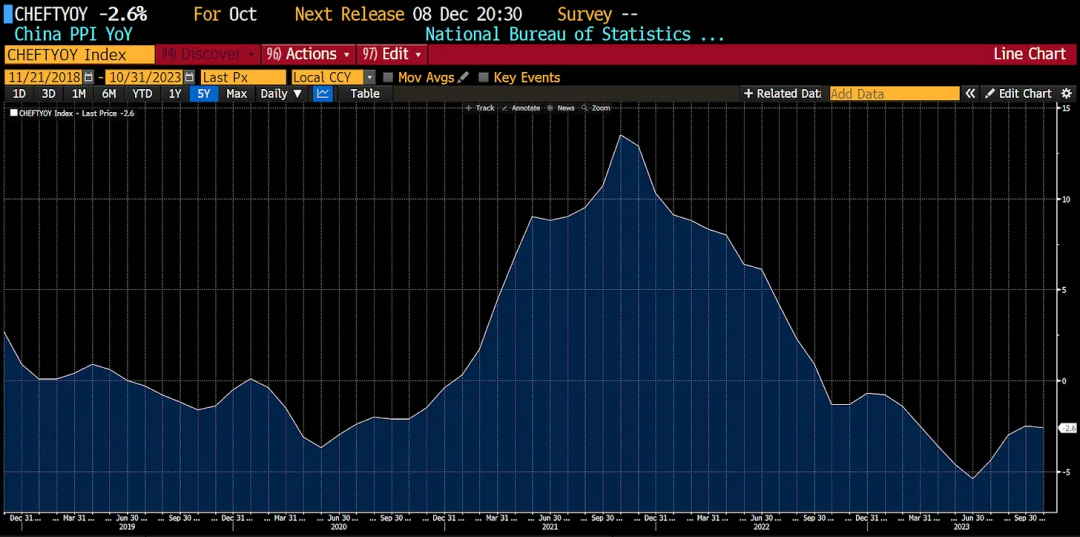Arthur Hayes: The U.S. treatment of Zhao Changpeng and Binance is absurd, and cryptocurrencies may benefit from the influx of funds from China
Author: Arthur Hayes
Compiled by: GaryMa, Wu Says Blockchain
Note: This article is an excerpt and compilation based on the aforementioned Chinese version, and some details or information may have been omitted. Due to related reasons, this article has been heavily abridged. We recommend that readers refer to the original text on Arthur's official Twitter for more comprehensive information while reading this article.
Zhao Changpeng (CZ), the former CEO of Binance, is a "sinner," but not in the way you might think, due to recent litigation events. In the eyes of Satoshi Nakamoto, CZ and we are all sinners because we profit from centralization. Centralization is the tool of the devil. Humanity—potentially including artificial intelligence in the future—will collaborate using decentralized structures without coercion to achieve common goals. The state promotes centralization and enforces collaboration through the threat of violence.
In just six years, from 2017 to now, CZ and the Binance team have grown from nothing to become the largest centralized cryptocurrency exchange in the world. Binance is not only the largest cryptocurrency exchange but may also rank among the top ten globally in terms of average daily trading volume, whether traditional or otherwise.
A few years ago, CZ was an obscure Canadian of Chinese descent. His surname is not synonymous with power like Rothschild, Rockefeller, or other dynasties. Yet, in less than a decade, he has risen to become one of the richest people on Earth, with his rise built on enabling millions of people worldwide to trade cryptocurrencies. For some, this means Binance is their pathway to financial freedom. For others, it is a highly effective way to speculate on new political, economic, and technological systems.
The problem for the financial and political establishment is that the intermediaries facilitating the flow of the industrial revolution are not operated by members of their class. The intermediaries and owners of crypto assets are the people themselves. Never before have people had the ability to own a piece of the industrial revolution in just ten minutes through desktop and mobile trading applications. From a fundamental perspective, those who own centralized exchanges utilize the tools of the state, corporations, and legal structures to disintermediate institutions that should operate the global financial and political systems under the U.S. framework. CZ has paid a heavy price for this.
How much has CZ paid? CZ and Binance have paid the largest corporate fine in U.S. history: $4.3 billion!
This seems a bit strange. The bad girl, U.S. Treasury Secretary Janet Yellen, stands up to denounce all the crimes of CZ and Binance. Did former Goldman Sachs CEO Lloyd Blankfein receive the same treatment under his reign for helping former Malaysian Prime Minister Najib Razak and financier Jho Low steal over $10 billion, leaving a developing country burdened with more expensive international debt? No, Lloyd retired with his stock options intact, and GS was not considered criminally liable. Have any CEOs of too-big-to-fail banks been criminally prosecuted for triggering the worst global financial crisis since the Great Depression of the 1930s? No, they received a free pass because prosecuting them would threaten the banking system. Did HSBC's CEO ever take the time to have employees personally change cash deposit points to allow Mexican drug cartels to launder money more effectively? Did they sell drugs to the American public to make money?
So why does a company that has existed for less than a decade face such severe punitive measures? Did Binance commit more crimes than any bank in U.S. history, some of which have existed for centuries? Clearly, the treatment of CZ and Binance is absurd and highlights the arbitrary nature of state punishment.
I am not Dostoevsky; this is not a philosophical discussion of crime and punishment, but what does this absurdity tell us about our beliefs? It tells me that cryptocurrency is one of the most significant political, financial, and technological developments in the history of civilized humanity. We are trying to create a parallel financial, political, and economic system based on voluntary participation rather than violent coercion. It is so transformative that one person can become one of the richest people in the world in less than a decade, and his company can become more indispensable than financial institutions that have existed for centuries. For the first time in history, we the people can own the cornerstone of a new era of digital human society with just a swipe on our smartphones. If, after seeing the immense pressure the state has placed on CZ and Binance, you still do not want to join the ranks of Bitcoin and other cryptocurrencies, I do not know what else you need to see.
If you hold cryptocurrencies, make sure to store them in a wallet where you control the private keys. Otherwise, you will gain nothing and remain a slave forever.
That said, let’s get to the real focus of this article. China and the U.S. are friends again. The result of this rekindled friendship will be that China's money printing machine will start up. Let’s see how this Eastern giant is about to boost the emerging crypto bull market.
The Time Has Come
What has changed is the re-alignment between China and the U.S. Even if this closer relationship lasts only a few years, it gives China cover to act in accordance with global expectations, just as they printed money in large quantities from 2008 to 2015.
Let me first illustrate with some charts that now is the time to inject renminbi credit into the global market.
The Renminbi Will Strengthen

The blue shaded area is a chart showing the deviation of the People's Bank of China's (PBOC) pricing of the renminbi against the dollar from its fair market value. The higher the value, the more pronounced the depreciation of the renminbi against the dollar. From the chart, it can be seen that due to the depreciation of the yen (green), the renminbi (yellow) has faced depreciation pressure, but the PBOC has maintained it stronger than it should be. This is costly because it means the PBOC is selling dollar assets to maintain the artificial strength of the renminbi.
Now the bad girl Yellen is implementing a weak dollar policy, and the PBOC does not have to spend precious dollars to support the renminbi. The yen is strengthening and re-aligning with the strong renminbi. Japan is China's largest export competitor. If the yen depreciates, the renminbi must also depreciate so that Chinese exporters can remain globally competitive. The renminbi is now at fair value and will actually strengthen as the dollar continues to depreciate. This provides China with significant room to increase onshore renminbi credit without depreciating the currency or putting immense pressure on the PBOC to maintain the currency stronger than its actual value.
China is in Deflation

China's economy is built on infrastructure investment and manufacturing, rather than consumer purchases, which is referred to as a supply-side or supply-driven economic structure. Therefore, the most relevant inflation statistic is the Producer Price Index (PPI), rather than the Consumer Price Index (CPI). The PPI is declining, indicating that the supply side of the economy is unhealthy.
The PBOC has ample room to alleviate this by increasing credit growth since the PPI is in deflation territory.
As I have indicated above, China has enough room to significantly increase credit. Since the PPI is in deflation territory, credit expansion will not lead to exacerbated inflation. It will also not lead to currency depreciation, which would trigger capital outflows, as the U.S. is implementing a weak dollar policy while the yen is strengthening.
Even with all this happening quickly, how do we crypto traders make money?
Michael Pettis, a former bond trader at Bear Stearns and now a professor at Peking University, believes that China exhausted its ability to absorb debt in the early 21st century. Since then, all the additional debt has been invested in various projects that cannot achieve returns exceeding the debt interest rates. The result is that, despite trillions of renminbi being allocated to various projects, society is becoming increasingly impoverished as future economic growth is nearly impossible to match the interest costs and principal repayments.
As real interest rates decline, state-owned enterprises that manufacture goods will theoretically be able to expand production. Of course, more Chinese trinkets will flood into the U.S. and European markets. However, most of the funds will be used for speculation in financial markets because the world does not need more stuff. This is because, as Pettis argues, China cannot profitably absorb more debt, so it is pushed towards financial markets.
Capital, by which I mean digital fiat credit currency, is globally interchangeable. If China is printing renminbi, it will enter the global market and support the prices of various risk assets. If a significant portion of hundreds of billions of dollars worth of renminbi flows out of China, then state-owned enterprises and households will speculate in global financial markets due to the insufficient domestic uses of capital.
Capital flows from China into Bitcoin in both micro and macro ways.
Micro
Hong Kong is China's window to the global capital markets. State-owned enterprises and wealthy Chinese individuals withdraw funds from Hong Kong banks for any international dealings. Hong Kong now has some fully licensed crypto exchanges and brokers where they can buy Bitcoin.
Any wealthy coastal Chinese person knows about Bitcoin and its prospects as a store of value. They have been observing this currency since its infancy and have been active participants in its success. If there is a legitimate way to transfer cash from the mainland to Hong Kong, Bitcoin will be one of the many risk assets to purchase.
Macro
Since the end of the 2010s, Chinese authorities have been trying to shift China from a supply-driven economy to a demand-driven economy. At a fundamental level, they influence this policy by making credit more expensive onshore. This shifts activity from capital-intensive heavy industries to more consumer goods and services. As a result, many companies, with real estate developers being the most active, have turned to offshore borrowing in dollars. The demand for dollars and the repayment of those dollar loans have driven up the value of the dollar and made credit more expensive globally. As the Chinese banking system provides more abundant renminbi credit, the demand for dollar credit and liquidity will weaken.
Given that the dollar is the world's largest financing currency, if credit prices decline, all fixed supply assets, such as Bitcoin and gold, will rise in dollar terms. The greatness of this macro bullish pillar is that it does not require Chinese enterprises and wealthy individuals to buy any Bitcoin. The interchangeability of global fiat credit currencies will determine where marginal fiat dollars will flow, such as into hard currencies like Bitcoin.
2024 and Beyond
Nothing changes people's views more than an election year. The primary goal of any politician is re-election. The Democrats will do whatever it takes, and they have shown a willingness to do so by arresting former President Trump to maintain their top position. Therefore, it can be expected that the friendly Biden administration will sweep any minor U.S.-China misunderstandings under the rug. Thus, I will continue to shift funds from government bonds into cryptocurrencies because I want to enter before the data clearly shows that China's money printing machine is in operation.









